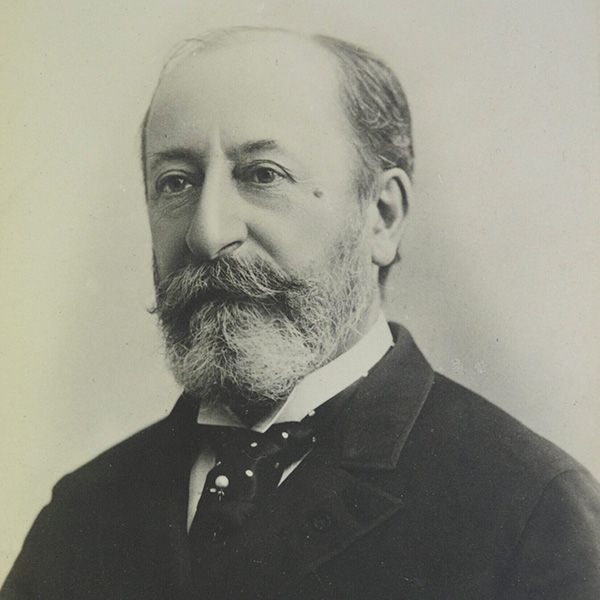
© Jean-Baptiste Millot / Caroline Doutre
Ismaël Margain and Guillaume Bellom take us on a musical journey rich in rare tones, thanks to the somewhat unusual combination of two grand pianos on the same stage.
Drawing on the repertoire of the Belle Époque – compositions by Saint-Saëns, Massenet, Bonis, Chaminade, Debussy, Chabrier and Ravel – they travel the world from east to west, starting in Japan, then, after crossing the Suez Canal, heading for the sunny roads of Spain. The rare experience of hearing pieces for two pianos is combined here with the pleasure of listening to French composers of the turn of the twentieth century taking inspiration from traditional melodies to express their modernity.
Concert followed by a cocktail.
Drawing on the repertoire of the Belle Époque – compositions by Saint-Saëns, Massenet, Bonis, Chaminade, Debussy, Chabrier and Ravel – they travel the world from east to west, starting in Japan, then, after crossing the Suez Canal, heading for the sunny roads of Spain. The rare experience of hearing pieces for two pianos is combined here with the pleasure of listening to French composers of the turn of the twentieth century taking inspiration from traditional melodies to express their modernity.
Concert followed by a cocktail.
Dates
Performers
Guillaume Bellom and Ismaël Margain piano
Programme
Works for two pianos by SAINT-SAËNS, MASSENET, BONIS, CHAMINADE, DEBUSSY, CHABRIER and RAVEL
Camille Saint-Saëns
1. La Princesse jaune op. 30 : Ouverture
(transcription de Gabriel Fauré)
Jules Massenet
2. Le Roi de Lahore : Ballet
(transcription de Renaud de Vilbac)
Mel Bonis
3. Le Songe de Cléopâtre, op. 180/1
Camille Saint-Saëns
4. Caprice arabe op. 96
Cécile Chaminade
5. La Sévillane op. 19 : Ouverture
(transcription de la compositrice)
Claude Debussy
6. Lindaraja
Emmanuel Chabrier
7. España
(transcription du compositeur)
Maurice Ravel
8. Rapsodie espagnole :
I. Prélude à la nuit – II. Malagueña
III. Habanera – IV. Feria
(transcription du compositeur)
Camille Saint-Saëns
1. La Princesse jaune op. 30 : Ouverture
(transcription de Gabriel Fauré)
Jules Massenet
2. Le Roi de Lahore : Ballet
(transcription de Renaud de Vilbac)
Mel Bonis
3. Le Songe de Cléopâtre, op. 180/1
Camille Saint-Saëns
4. Caprice arabe op. 96
Cécile Chaminade
5. La Sévillane op. 19 : Ouverture
(transcription de la compositrice)
Claude Debussy
6. Lindaraja
Emmanuel Chabrier
7. España
(transcription du compositeur)
Maurice Ravel
8. Rapsodie espagnole :
I. Prélude à la nuit – II. Malagueña
III. Habanera – IV. Feria
(transcription du compositeur)


 Torna indietro
Torna indietro  newsletter
newsletter webradio
webradio replay
replay
